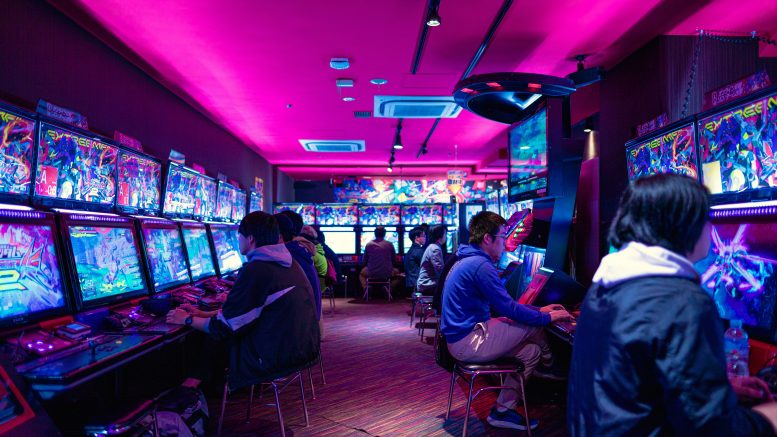Contrary to expectations (sorry, parents!), gamers have better mental health than those who do not play, the Oxford Internet Institute (OII) reported.
Two games were central to the research: Animal Crossing and Plants vs Zombies: Battle for Neighborville.
However, OII believes subjective experiences and gaming network opportunities are more important in shaping the research than the games themselves.
[youtube https://www.youtube.com/watch?v=RLlIwnhmLlQ]
The leading researcher, Professor Andrew Przybylski, said to the BBC: “If you play Animal Crossing for four hours a day, every single day, you’re likely to say you feel significantly happier than someone who doesn’t. That doesn’t mean Animal Crossing by itself makes you happy.”
Previous studies showed playing any type of game for half an hour enhances one’s social skills.
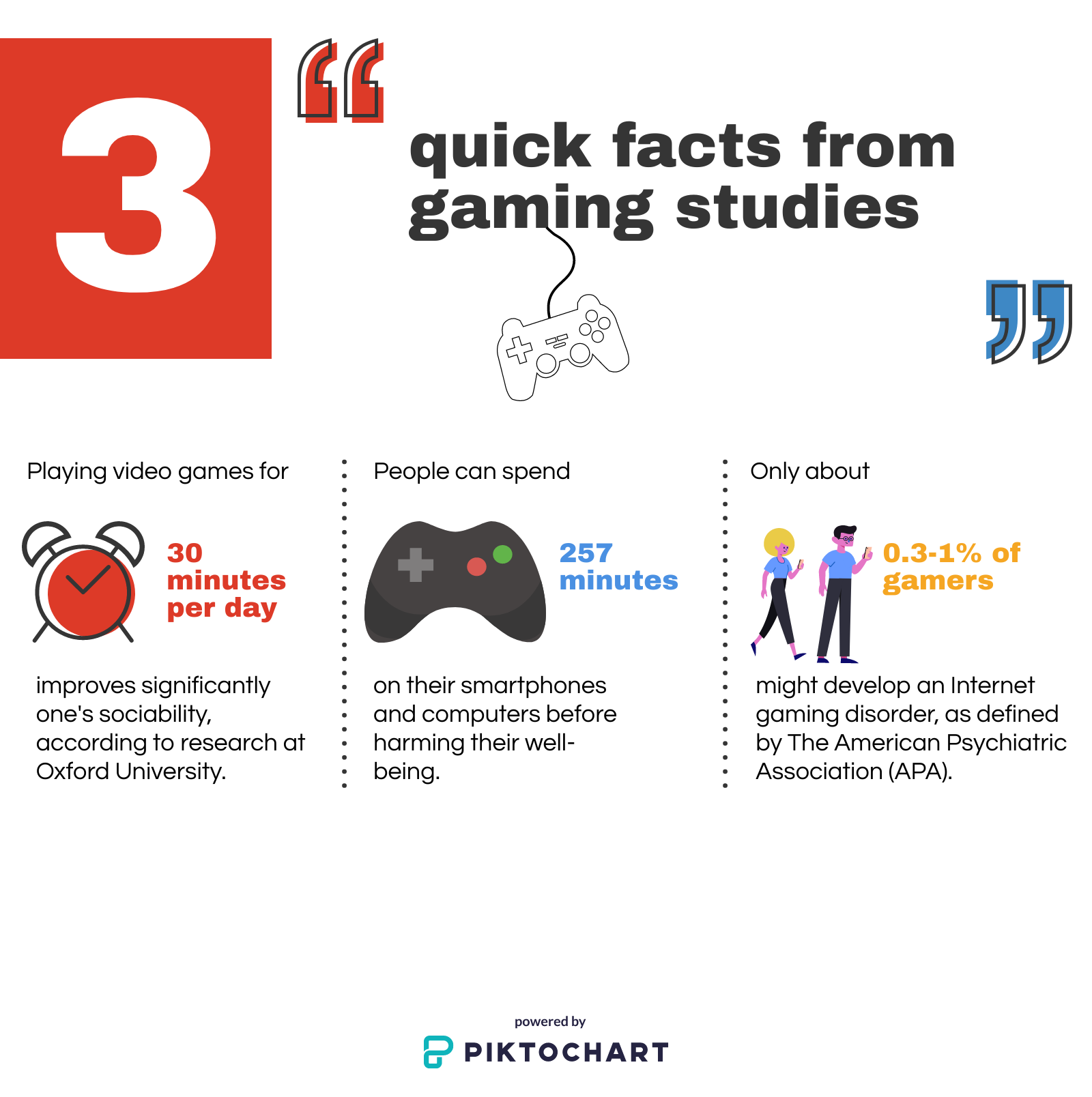
Infographic by Kristina Hristova on Piktochart | Facts (from left to right) by Nature World News (1), The Telegraph (2), Przybylski et al. (2016). Internet Gaming Disorder: Investigating the Clinical Relevance of a New Phenomenon. The Americal Journal of Psychiatry (4 Nov 2016). https://doi.org/10.1176/appi.ajp.2016.16020224 (3)
Zahrah Rahman, 19, a Psychology student at the University of Westminster, said: “With Covid-19, I have been able to make friends from my university through gaming instead.”
‘‘We are as strong as we are united’’: business insights from Retro Games
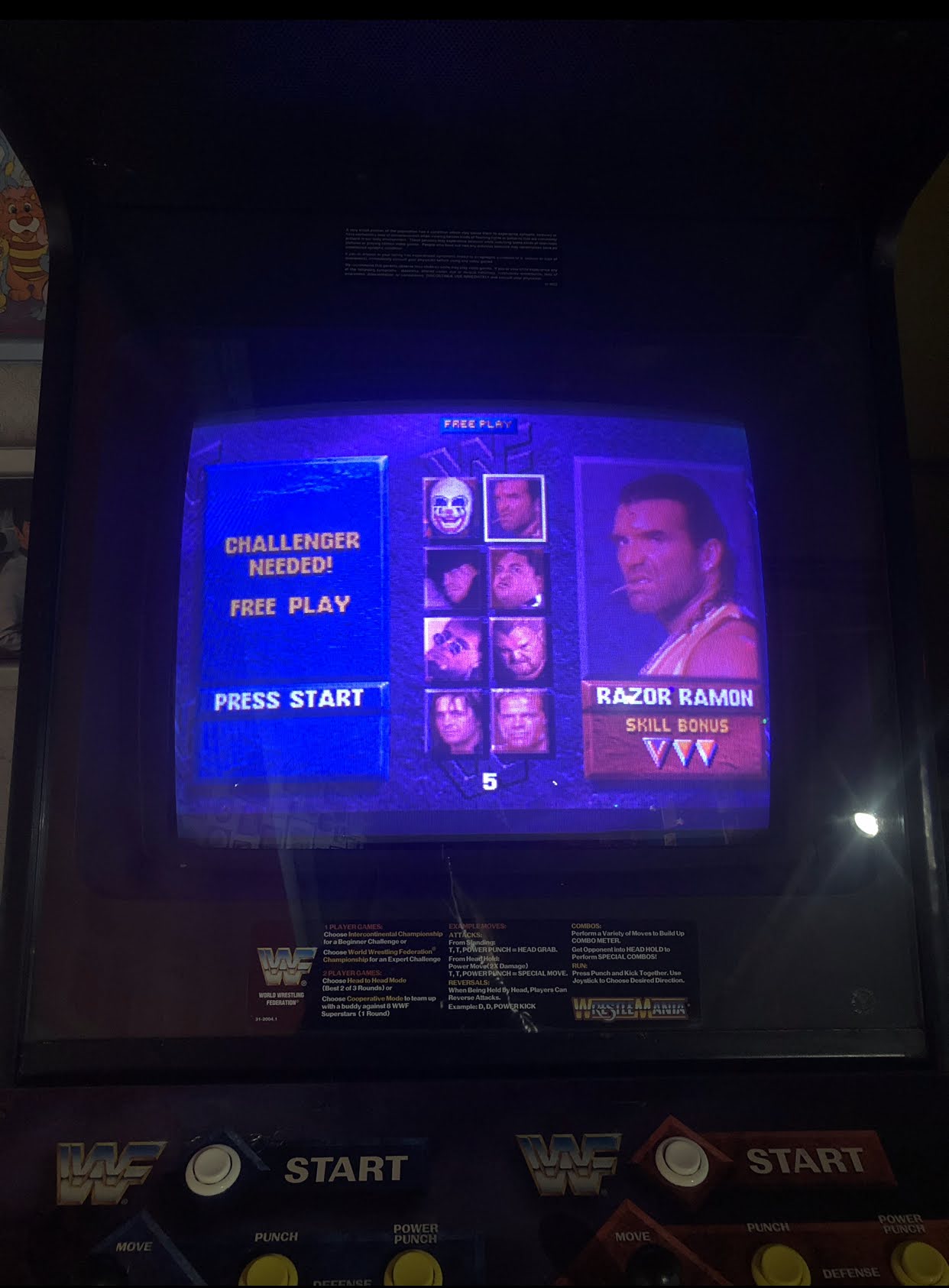
A classic arcade machine at the Cereal Killer Cafe in Camden. Photo by Kristina Hristova
Jason Moore, 49, the owner of the Retro Games online shop, said for the VoL: “Video games are exciting. [They are] capable of transporting you to other worlds, pushing your brain in new directions – a vital distraction to the what’s going on outside, particularly in these tough times.”
Moore founded Retro Games in 1994 as a magazine that started selling games in the back pages. He is proud that his creation is older than Google.
Currently, he continues to be a “frustrated writer” in the online version of the mag.
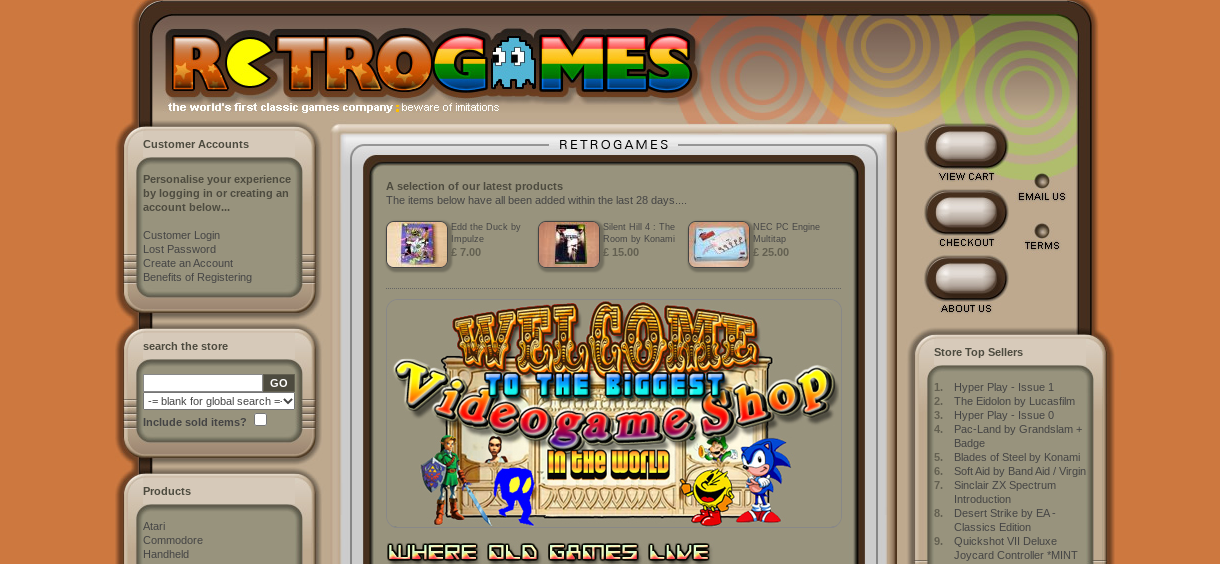
Screenshot of Moore’s website by Kristina Hristova
Moore remains positive, despite the challenges ahead of his business. “Sales over the past couple of weeks have been steady for us, not where they would be, but not a disaster. Because we sell old and collectible games, our business is a bit different to traditional retail.
“We saw a big upturn in sales in late March, right through to May, but as soon as the shops began opening, our sales slowed and dropped below normal levels for the time of year.”
Retro Games continues to dispatch vintage video games to its satisfied customers during the second lockdown.
“At this time of year, everyone is buying items for gifts to trigger those emotions in friends and relatives. I get a lot of lovely emails after Christmas from our customers about how their purchases made them feel.
“Just like the old children’s television programs you watched as a child, playing the games you loved from those early days can take you back in time.”
The online shop also buys collections from people who need immediate financial support.
Moore said: “What we have seen in the past few weeks is an upturn in people selling their collections to us. It’s something which has happened before as the economy has stalled.
“I think during this lockdown there are a lot of people struggling for money. We’ve got collections being offered to us from across Europe as people desperately need funds to get through the festive period.”
“The only thing that can defeat power is more power”: the VoL gamers’ profiles

Edit by Kristina Hristova on Pixlr | Photo by Mike Meyers on Unsplash
Ifthi Shahjahan, 18, a first-year Psychology student at the University of Westminster, played games for a couple of hours every day during the first lockdown.
He said: “Many of my friends also played, so we used this as a means of efficient and enjoyable communication, to help us all stay in touch.”
Ifthi has had a positive experience from his social interactions in video games. “I’ve met many good friends over gaming, such as through the use of Discord (a communication platform heavily used by gamers). I noticed it’s easy being a part of a community within gaming.”
Gaming makes him happier. “It’s one way to lighten things up.”
Ever since the semester started, Ifthi reduced his playtime to a few hours per week. “I’d play if I’ve done enough work for uni.”
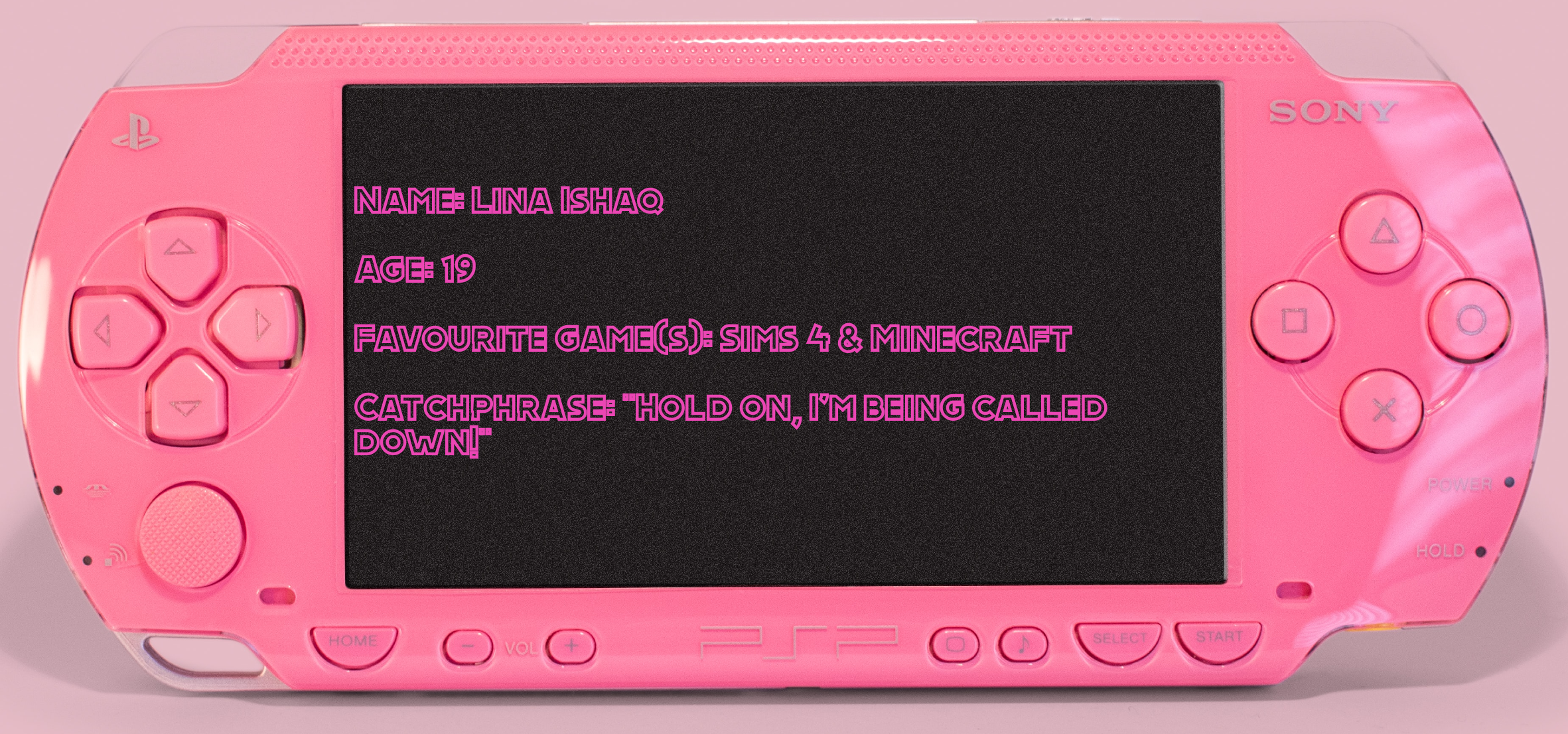
Edit by Kristina Hristova on Pixlr | Photo by Batu Gezer on Unsplash
Lina Ishaq, 19, a Psychology student at the University of Westminster, is a moderate gamer who plays a bit on the weekends. She said: “I’ve yet to spend a night playing. I prefer to play in short bursts – that way, it’s more refreshing.”
She is delighted around other players and says video games help her cope with stress. “The community is very welcoming. Gaming makes me feel more relaxed [and] it is essentially a distraction from the real world.”
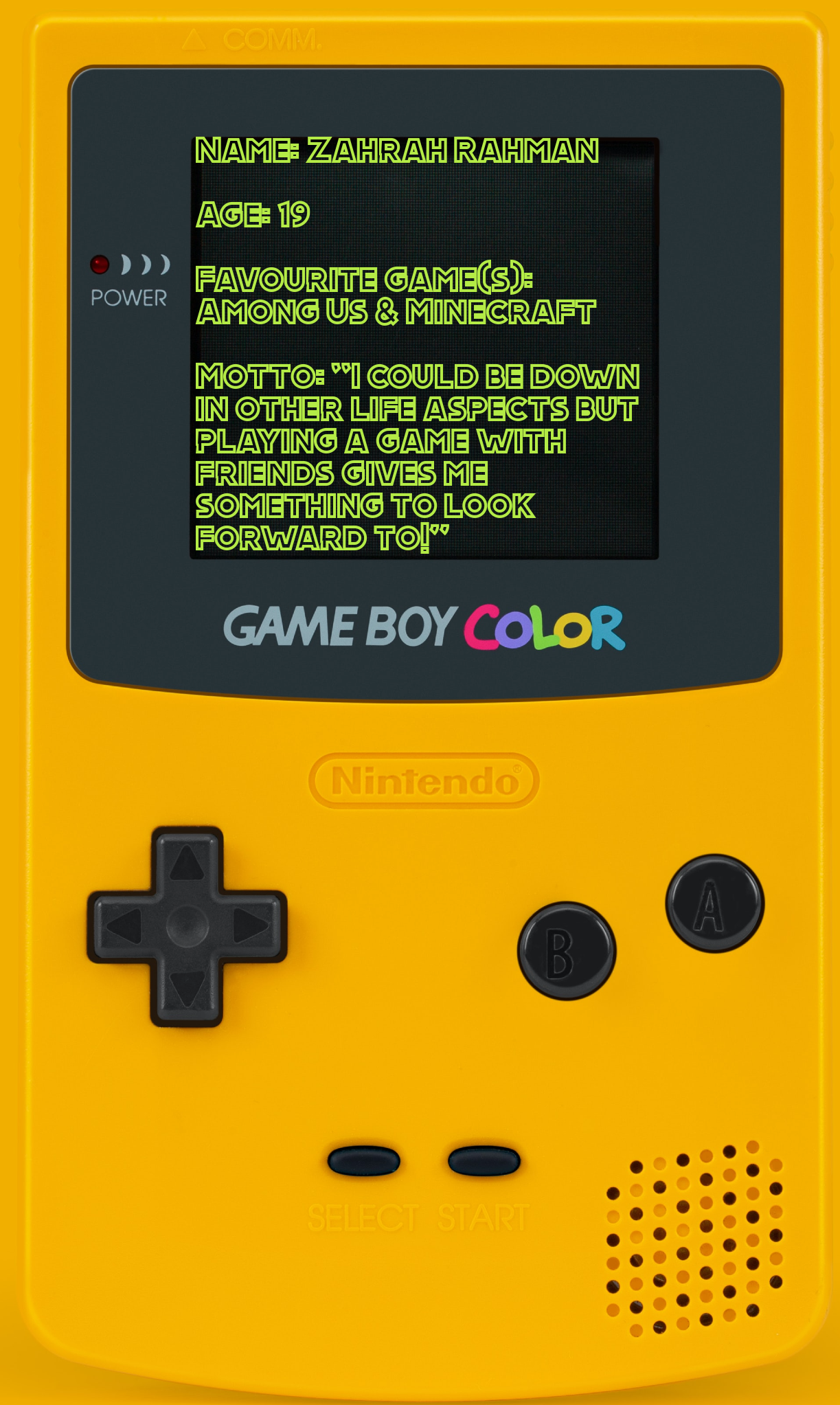
Edit by Kristina Hristova on Pixlr | Photo by Mike Meyers on Unsplash
Zahrah loves multiplayer games. She said: “[They] build friendships (…) and require creativity and analytic thinking.”
Even though gaming improves her mood, she notices long sessions in front of the computer can affect her workflow. “I would say that they are exhilarating, but they do reduce productivity the next day slightly.”
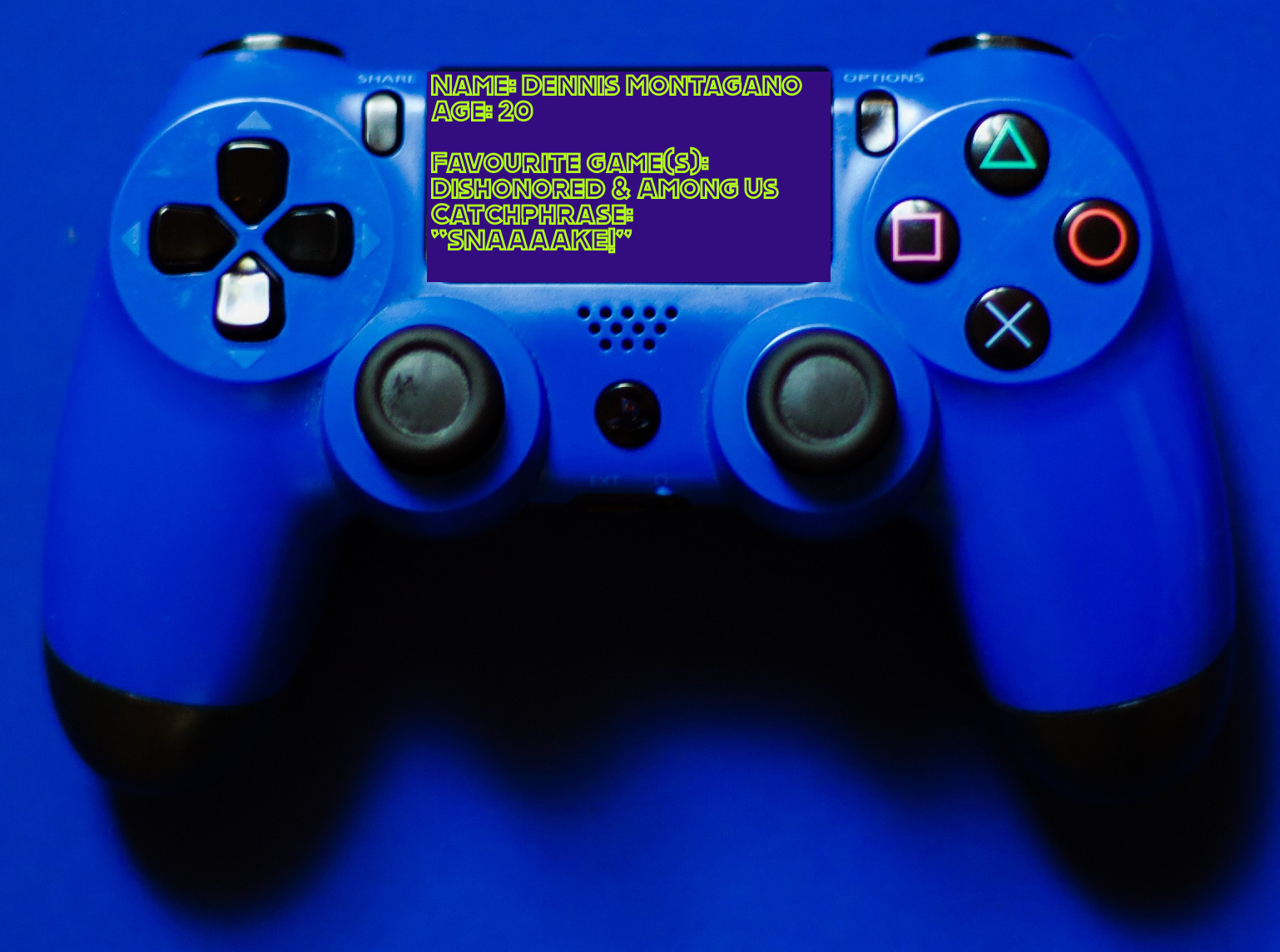
Edit by Kristina Hristova on Pixlr | Photo by Sean Stone on Unsplash
Video games help Dennis Montagano, 20, a Spanish and English language student at the University of Westminster, study new material. He said: “I often set the game language to Spanish, so I can learn more while having fun.”
Dennis is equally good at being a lone wolf in Dishonored and a team player in Among Us. “When I want to be a single-player, I choose Dishonored. I like the satisfaction in passing a level without even hurting the enemies. In Among Us, I enjoy deceiving my friends from Italy as the impostor.”
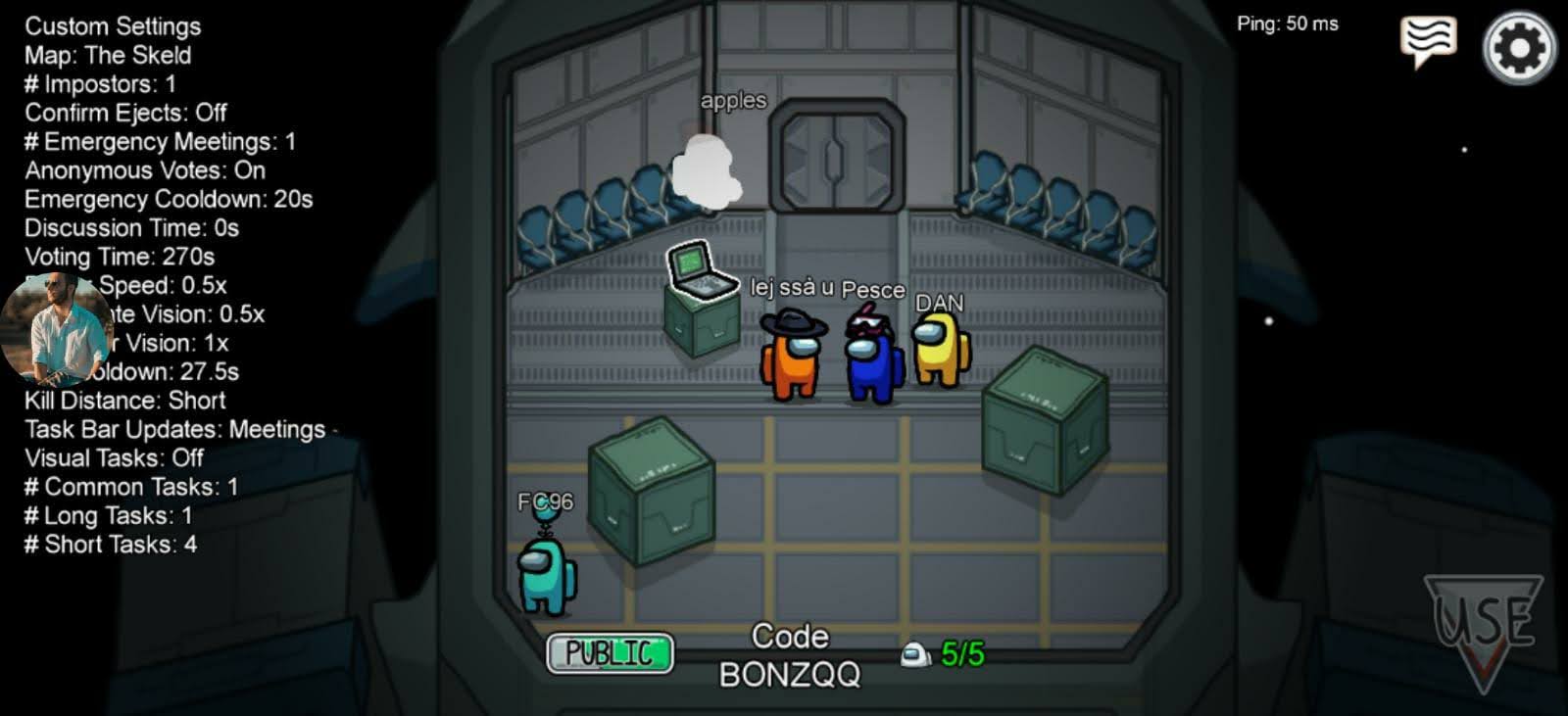
Who’s the impostor? Dennis and friends in Among Us | Photo by Dennis Montagano
He connects with his long-distance friends through gaming. “When we are not taking the game seriously, we are just talking about life and random things. It makes me feel closer to them, in spite of the physical distance and the whole lockdown situation.”
For Dennis, how long he will play depends on the game and his availability. “With Among Us, I tend to play for one hour and a half, but if a game really “takes” me, I can play for three to four hours when I don’t have anything to do on that particular day.”
He believes that apart from working hard, we have to play hard from time to time. “I have spent more than one night playing videogames, especially during the lockdown. As a result, I seriously screwed up my patterns and wasn’t able anyway to sleep before early morning. I wouldn’t call it productive, but neither tiring, as it still managed to give me something to do not related to being always productive.”
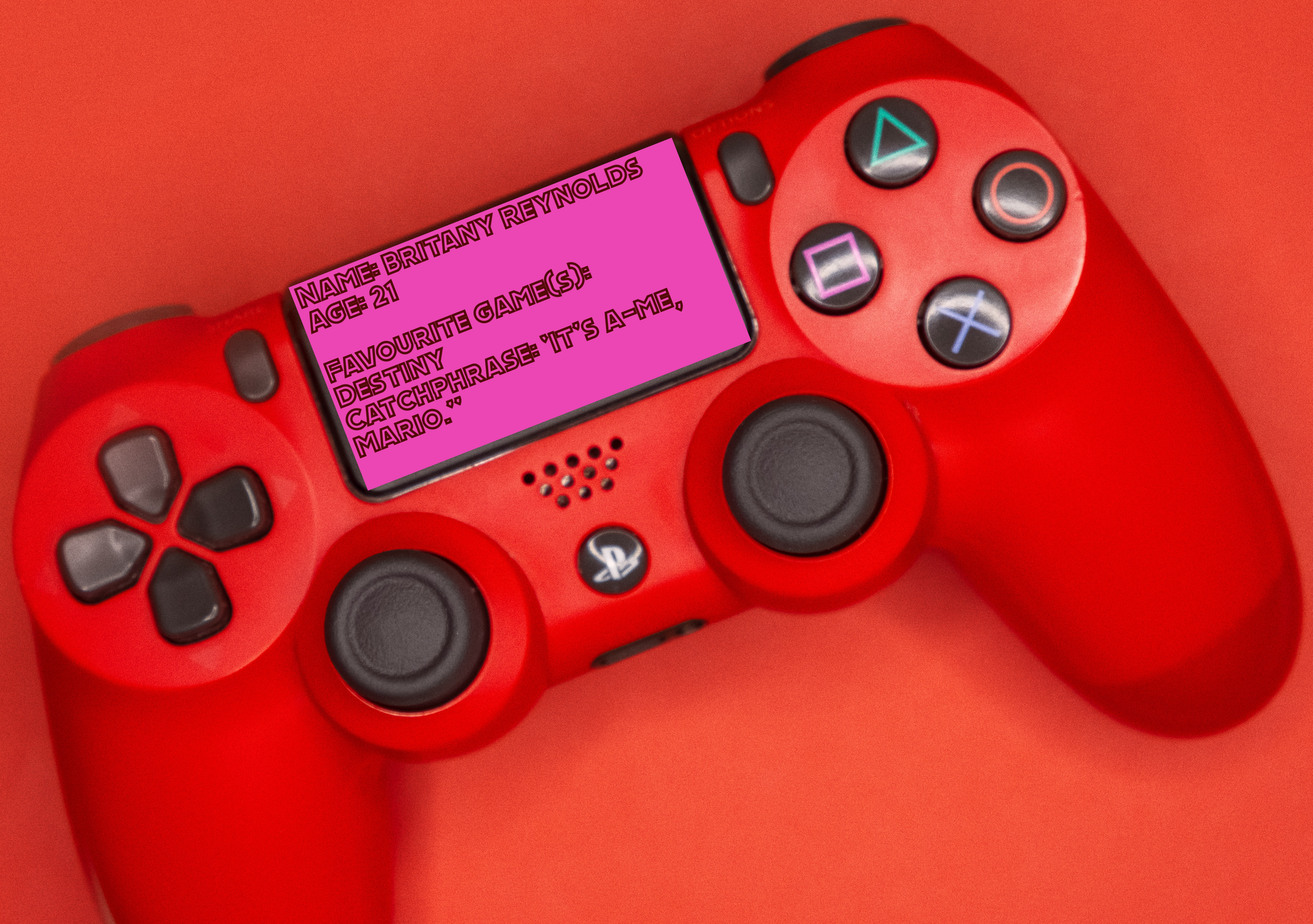
Edit by Kristina Hristova on Pixlr | Photo by Daniele Franchi on Unsplash
Britany Reynolds, 21, a Contemporary Media Practice student at the University of Westminster, also has a good time online.
She said: “I have met friends through gaming, from America and Canada. They were helping me grind gear in Destiny.”
Britany is currently exploring the issue of identity escapism in Japanese dating games. “I believe one of the major reasons people play games is to escape – whether it’d be to experience a fictional world or simply reduce stress.
“In Japan, where the situation is male-dominated, women play games to become leading figures and feel more powerful.”
I’m very vocal about mental health wellbeing. Gaming & the community has been a massive help to mine. Especially this year. I support @SquaredSeven #SAFEMentaliTee campaign: https://t.co/WDMSocWqRB
How has gaming helped your mental health? Let’s chat… pic.twitter.com/KsY3WsKYFe
— Jingle ‘Velles ❄️🎄🎁 (@aravelle) November 20, 2020
Gaming does not simply kill time. It is devotion to grow, strategise and improve by overcoming challenges.
As the Skyrim character, Paarthurnax, says: “What is better – to be born good, or to overcome your evil nature through great effort?”
Games are the first step to construct a fairer and more beautiful reality either on your own or in the company of friends.
- Outside Cyberdog in Camden. Photo by Kristina Hristova
- Inside Cyberdog in Camden. Photo by Kristina Hristova
- Inside Cereal Killer Cafe in Camden. Photo by Kristina Hristova
- Inside Cyberdog in Camden. Photo by Kristina Hristova
- Inside Cyberdog in Camden. Photo by Kristina Hristova
- Playing Sims 3. Photo by Kristina Hristova
- The game squad. Photo by Nikola Kartelov
- Inside Cereal Killer Cafe in Camden. Photo by Kristina Hristova
- Playing NARUTO SHIPPUDEN: Ultimate Ninja STORM 4. Photo by Dennis Montagano
- Boys with Yu-Gi-Oh duel disks. Photo by Kristina Hristova
Words: Kristina Hristova | Subbing: Maelina Hassel | Photo gallery’s contributors: Dennis Montagano, Nikola Kartelov, Kristina Hristova

